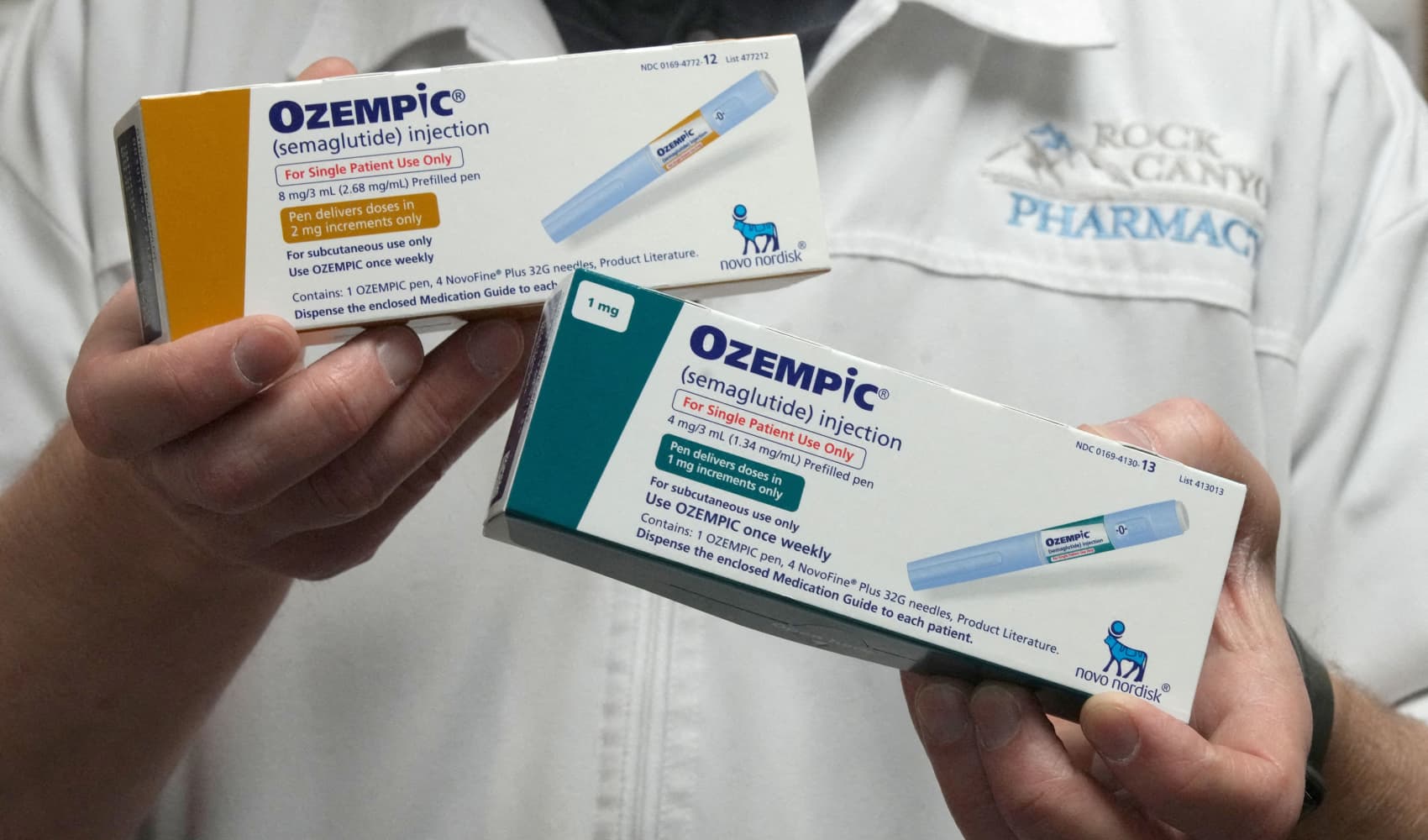Weight loss with Ozempic or Wegovy can be effective, but expensive. Enter so-called GLP-1 supplements that have taken on the nickname “nature’s Ozempic.”
They’re much cheaper than the injectable prescription drugs, and include berberine, gummies and drink mixes infused with oatmeal and tea.
One of the latest products on the market — Lemme GLP-1 Daily, from Kourtney Kardashian Barker's wellness brand — is advertised as helping to reduce hunger, decrease weight and increase levels of GLP-1. It's a hormone the body produces when people eat food to signal fullness to the brain.
But do these products really work? Doctors are skeptical.
Get Tri-state area news delivered to your inbox. Sign up for NBC New York's News Headlines newsletter.
Ozempic, a Type 2 diabetes medication, and its sister drug Wegovy, which is specifically approved for weight loss, both contain semaglutide, which mimics GLP-1.
This active ingredient has gone through a rigorous approval process by the U.S. Food and Drug Administration and has been shown to suppress appetite, leading people to lose weight, said Dr. Roshini Raj, a New York gastroenterologist.
It’s a different story with the cheaper alternatives.
Health
“What’s very misleading, in my opinion, is a lot of these supplements have the term GLP-1 on the bottle, but they do not contain GLP-1. They do not contain an agonist or a mimicking hormone,” Raj said in a TODAY segment that aired on Thursday, Sept. 19.
“They contain extracts, maybe from fruits or vegetables, that purport to boost your body’s natural GLP-1. But to me, that’s a big difference.”
So if you pick up a bottle of supplements that says GLP-1 on the label, you’re not getting GLP-1 and you don’t know exactly what’s inside, Raj warned. Companies can get away with that because the supplement industry is not well regulated, and the FDA doesn’t approve the supplements, so little is known about the safety or efficacy of the products, she added, calling it “a bit of a Wild West.”
The emerging supplements claim to promote natural production of the GLP-1 hormone, but they undergo far less testing than drugs, said Dr. Hans Schmidt, a bariatric surgeon in New Jersey. They're not vetted by the FDA and there's no evidence they work, he added.
“I don’t think that they’re anywhere near the strength of the injectable,” Schmidt told TODAY. “If you can just go buy a supplement and lose 20 or 30, 40 pounds, you couldn’t hear the end of it. It would be all over the place. But they’re not.”
The Lemme brand said its GLP-1 Daily supplement is "formulated with clinically validated ingredients based on gold-standard human clinical studies that show increased GLP-1 levels, reduced hunger, and visceral fat loss," in a statement to TODAY.com.
The supplement is tested by NSF, an independent testing organization, for safety and dosage claims; and is "thoroughly vetted by third party scientific and medical experts for claims and safety," the company added.
The price difference between the prescription drugs and the supplements has some people eager to try the alternative products.
Ozempic and Wegovy can cost $1,000 a month without insurance, while some of the supplements cost about $70 a month or less.
Doctors advised consumers to be careful.
Berberine, for example, is unlikely to reduce appetite and potentially leads to very little, if any, weight loss, Dr. Pieter Cohen, an associate professor at Harvard Medical School who leads the Supplement Research Program at the Cambridge Health Alliance in Massachusetts, previously told TODAY.com.
Raj said there are too many unknowns about the alternative products.
“I’m not saying these are actually bad supplements — we just don’t know. We don’t know what they actually do. … There could be a downside,” she said.
“Because I don’t really know if they work, I certainly, as a doctor, wouldn’t recommend them.”
Schmidt echoed that sentiment, noting it's crucial to prioritize your health and safety.
"I wouldn’t recommend people take them because we don’t know what the side effects are. We don’t know what the downsides are. We don’t know how long you need to take them," he said.
"We have very effective treatments that are available, and I think most patients should take that route."
Talk to your physician before taking any dietary supplements, the FDA advises.
If you’re trying to lose weight, the classic advice still holds: eat a healthy diet, get plenty of exercise, get enough sleep and manage stress, Raj noted. A high-fiber diet, which also stimulates GLP-1 production, would likely be more effective than the supplements, Schmidt said.
If that’s not working, you talk to your doctor about getting one of the prescription GLP-1 medications that actually have been proven to work, she said.
This story first appeared on TODAY.com. More from TODAY:



